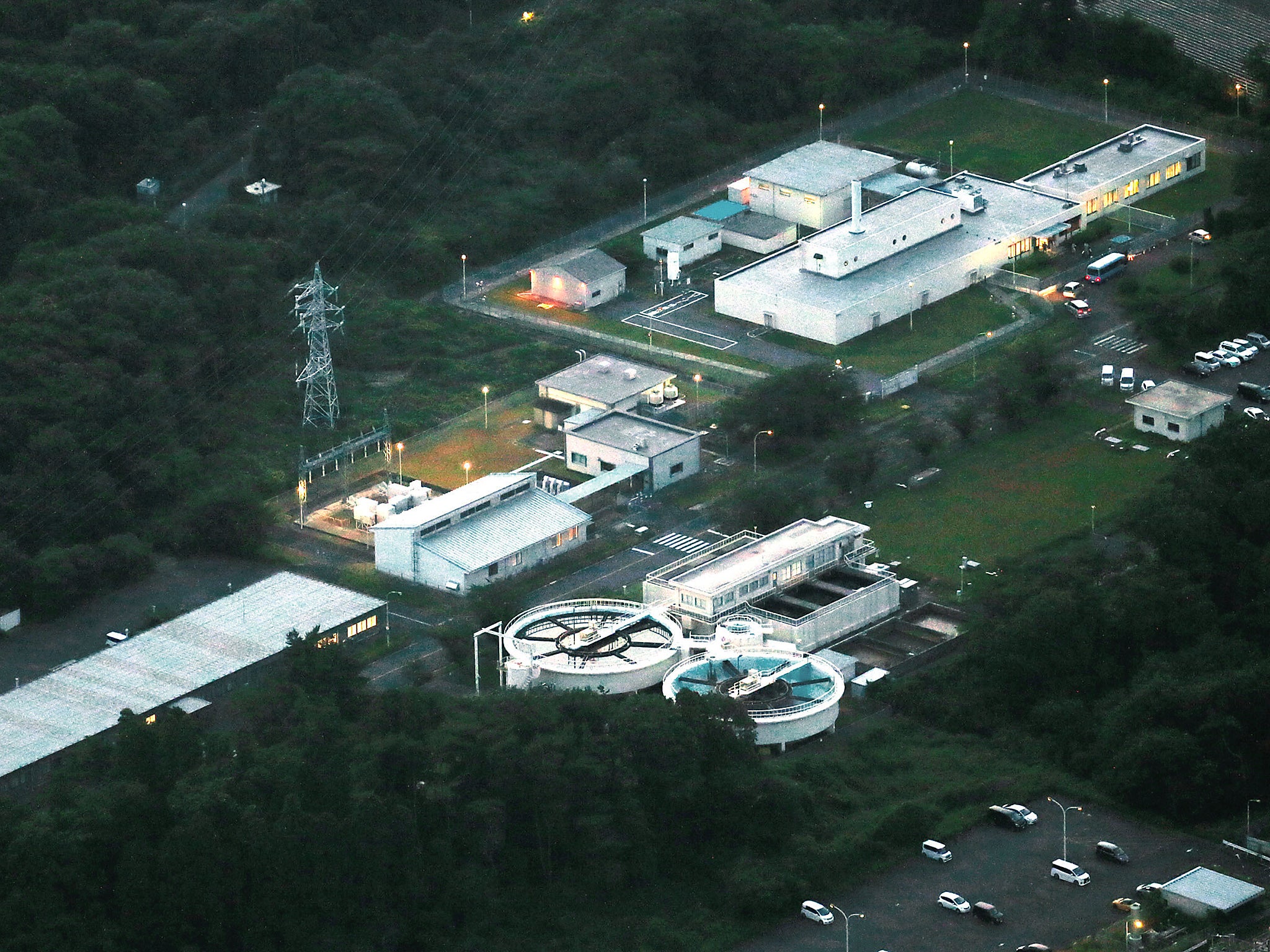Japanese nuclear workers open 'broken' bag of plutonium exposing themselves to devastating levels of radiation
One worker found to have high levels of the deadly element in his lungs

Five workers in a Japanese nuclear facility have been exposed to high levels of radiation after a bag containing plutonium allegedly broke during a routine inspection.
The incident happened at the Oarai Research and Development Centre in Ibaraki Prefecture, northeast of Tokyo, and the cause is still under investigation, Associated Press reports.
Initial details indicated three of the five workers were found to have contamination inside their nostrils, and all five had contamination on their limbs after removing protective clothing and taking a shower.
Agency spokesperson Masataka Tanimoto said one worker in his 50s was found to have up to 22,000 becquerels of Plutonium-239 trace in his lungs after he opened the lid of one of the containers. A broken bag with approximately 300g of plutonium and uranium powder came out. The agency estimates his body has approximately 360,000 becquerels of radioactive material inside overall.
Nobuhiko Ban, a radiology expert and a member of the Nuclear Regulation Authority (NRA) said at a meeting: “This is an unusually high amount of radiation. We must carefully look into whether the workers took proper steps."
An official told Japanese newspaper The Asahi Shimbun that “the amount is not enough to cause acute radiation.”
Internal radiation exposure has potentially detrimental long-term affects because of the risk of cancer. The man in question will need to be monitored for the rest of his life, said a doctor at the hospital where he and the other workers are being treated.
The Chairman of the NRA, which has frequently criticised the Japan Atomic Energy Agency (JAEA) for conditions in its facility, blamed workplace complacency for the incident.
JAEA’s safety record has been a source of controversy. Monju, a plutonium-burning reactor it oversees, is being closed by the government following a major incident in 1995.
An expert told the Japan Times the accident may have been the result of long-term buildup of helium emitted by plutonium.
In an effort to reduce the stockpile, Japan is burning plutonium. Progress is reportedly hindered by the anti-nuclear sentiment which has prevailed since 2011, following the Fukushima nuclear reactor meltdown.
Join our commenting forum
Join thought-provoking conversations, follow other Independent readers and see their replies
Comments